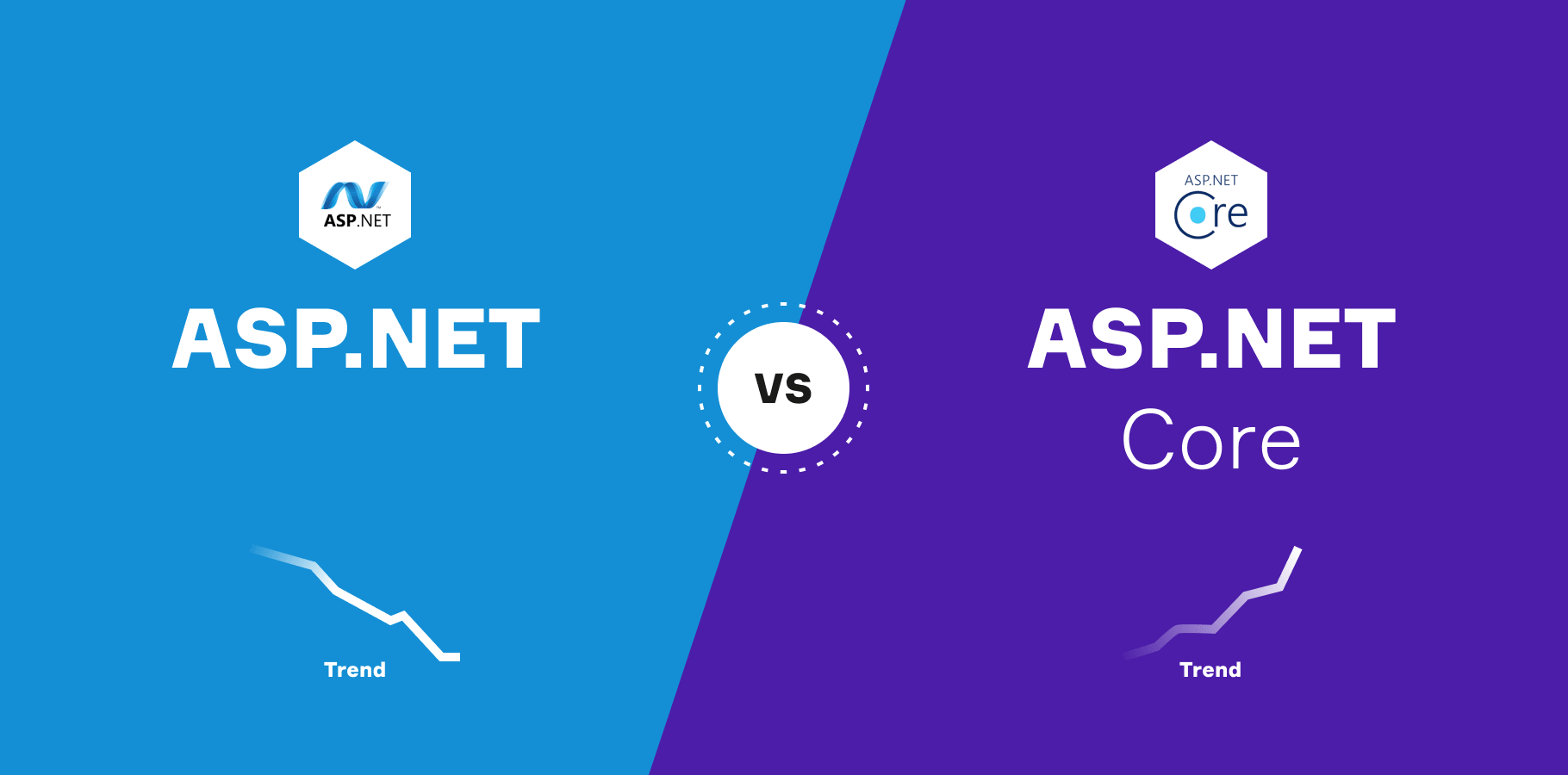What should you choose for your next project — .NET Framework or .NET Core? Let’s compare these two platforms and see if we can come to a conclusion. Spoiler: .NET Core is the future of .NET.
The vast majority have heard at least something about the ASP.NET platform and ASP.NET Core as well. True, knowledge is very scattered and unstructured, and there is no clear idea of the capabilities of these platforms. And even more so about their differences. So, here are the crucial features of the Microsoft's frameworks and their comparison with each other.

ASP.NET MVC: how it works
ASP.NET MVC is incredibly popular. And this is deserved.
ASP.NET framework uses the traditional MVC scheme — Model-View-Controller. All elements are responsible for specific actions. For instance, a user starts the registration process and sends the registration data to the server. The controller interprets the human actions and transfers the information to the model about the changes made to the user's status. The model responds to controller actions and works with the supplied data. The view is responsible for displaying information from the model.
After sending a request to the server, the controller starts processing it, then it transfers the changes to the model, which reacts to the update and produces everything necessary to display the site. The view performs only the role of displaying the appearance of the page — a normal HTML template.
.NET Core is like .NET, only better
ASP.NET Core is an entirely new approach to developing and deploying web applications that offer a host-independent framework and high-performance model. This means that ASP.NET Core applications are high-performance and can run on a variety of operating systems.
ASP.NET Core is a free, open-source, cross-platform platform for building cloud applications such as web applications, IoT applications, and mobile backends. It is designed to work both in the cloud and on-premises. Just like .NET Core, it has been built on a modular architecture with minimal overhead, and then other more advanced features can be added as NuGet packages according to the application requirements. This provides high performance, requires less memory, has a smaller deployment size, and is easy to maintain. In fact, it's a complete transformation of ASP.NET that combines the MVC framework and Web APIs into a single framework. It also uses the new Razor Pages programming model, making creating page-focused applications easier.
Comparison of ASP.NET and ASP.NET Core.
| ASP.NET | ASP.NET Core |
| Designed for Windows | Designed for Windows, macOS, or Linux |
| Use .NET Framework runtime | Use .NET Core runtime |
| One version per machine | Multiple versions per machine |
| Develop with Visual Studio using C#, VB, or F# | Develop with Visual Studio, Visual Studio for Mac, or Visual Studio Code using C# or F# |
| No support for Global.asax and Web config | WCF, WF, WPF, Web config, and more |
| Less control over dependencies | Strict control over dependencies |
| There used to be separate containers for IP | Inbuilt Dependency Injection (DI) support for ASP.NET Core |
| It is a good performance | Higher performance than ASP.NET |
What is the advantage of ASP.NET Core?
Application performance is one of the main factors to consider when choosing a framework for developing web solutions. The main advantage of ASP.NET Core over ASP.NET is speed. According to Microsoft, ASP.NET Core can process more than 7 million requests in one second. It's also easy to create an API to connect the front-end and external systems and keep the API documentation up to date.
In other words, ASP.NET Core, a well-equipped and robust framework, comes with many unique features, and with these notable simplifying features, ASP.NET Core provides significant benefits for the engineer, for business, and the end user.
New features in ASP.NET Core 7.0
On November 8, 2022, it was announced that Microsoft had unveiled the significant release of the open source .NET 7 platform, created by unifying the .NET Framework, .NET Core, and Mono products. With .NET 7, you can build multi-platform applications for browser, cloud, desktop, IoT devices, and mobile platforms using common libraries and a common build process that does not depend on application type. The .NET SDK 7, .NET Runtime 7, and ASP.NET Core Runtime 7 builds are formed for Linux, macOS, and Windows. .NET Desktop Runtime 6 comes only for Windows. Project-related developments are distributed under the MIT license. The .NET 7 branch will be maintained for 18 months until May 14, 2024.
Does it make sense to use ASP.NET?
Actually, in some cases, the old ASP.NET may work better. Developers still use it when maintaining projects with a codebase that has been developed for a long time and also in case the team is not ready to migrate due to higher-priority tasks. But still, the best practice is to use ASP.NET Core, as it is a newer version that provides more development options.


